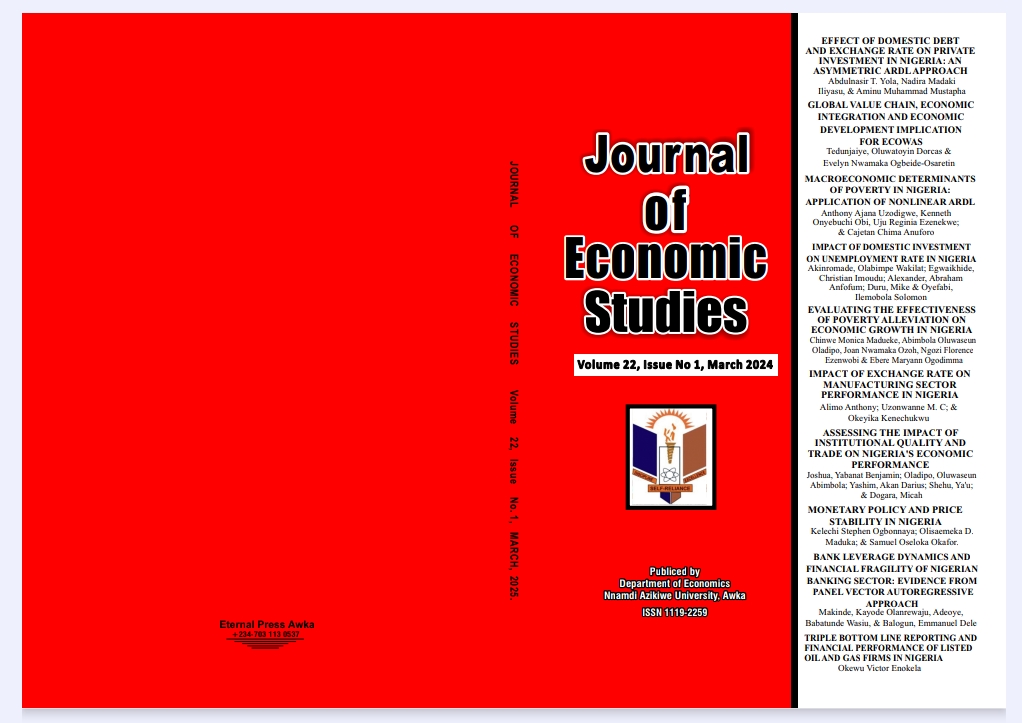IMPACT OF DOMESTIC INVESTMENT ON UNEMPLOYMENT RATE IN NIGERIA
Keywords:
Domestic investment, Unemployment rate, Government expenditure, Nigeria.Abstract
This study examines the impact of domestic investment on unemployment rate in Nigeria from
1999 to 2023. The Auto Regressive Distributed Lag (ARDL) was utilized to ensure that the
objectives of the study were achieved. Data for the variables were sourced from Central Bank
of Nigeria Statistical Bulletin, National Bureau of Statistics and World Development
Indicators. From the results of the study, domestic investment and gross domestic product
growth rate are negatively related to unemployment rate in Nigeria, while institutional quality,
inflation rate and government expenditure have positive impact both in the long and short run.
Based on the findings of the study it is therefore recommended that investments in strategic
sectors like manufacturing and agriculture should be promoted. The investments will improve
productive capacity, thus promoting faster growth and lowering the rate of unemployment both
in the short and long run.


